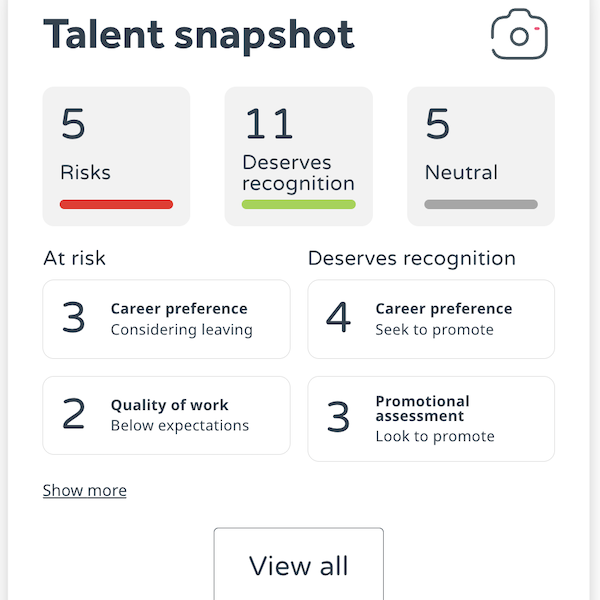It’s possible to plot a timeline of how employee engagement has evolved over recent times, but what are the new trends in employee engagement you should focus on?
As years have passed, employers have increasingly recognised the connection between an engaged workforce and a successful business. That change in recognition had been tangible, yet steady; a smooth upward trajectory in understanding – until the coronavirus changed everything.
A former Prime Minister, Harold Macmillan, was once asked what would determine his government’s course. He apparently replied, “Events, dear boy, events.” And events don’t come much bigger than a global pandemic.
Suddenly millions set up home offices, enacting a way of working which had previously been predicted, but rarely practiced. Then, as the lockdowns eased, employers found themselves facing daunting skills shortages, as well as a battle to source and retain talent.
Did the pandemic change the course of employee engagement trends? The answer is no. The compass still points in the same direction, but what happened was the velocity of travel which accelerated at break-neck speed.
With all the upheaval, ideas have now become established practice, and predictions have become trends. The future has arrived.
Employment Engagement Trends
#1 – Hybrid working – the time for talking is over
For most industries, flexible or hybrid working is now tried and tested. In fact, it is now on the verge of crossing over from a trend into the accepted mainstream.
The desire to have some form of remote or home working isn’t new. A 2020 Forbes paper on hybrid working quotes a 2017 survey, which found 47% of employees would consider leaving if their company didn’t provide remote work options. It can be assumed this figure is far higher in 2021.
As job vacancies rise and the skills shortage intensifies, more and more employees will see the option of hybrid working as a right, just as they would expect to get at least 20 days holiday. Employers that ignore this employee engagement trend and remain rigid will do so at their peril.
#2 – A people first culture – an essential employee engagement trend
A people first approach is another employee engagement trend which has flipped from desirable to essential in 2021. The reasons are the same – the fight for talent and a rise in employee expectations.
The ethos of creating a positive company-wide culture is still relatively new. In the late 20th century, many organisations looked to improve the employee experience, but few joined up the dots and realised just how important engagement was.
One of the most influential works on employment engagement was published in 1999 by the Institute of Employment Studies (IES). It was one of the first major papers that firmly established the link between a positive organisation culture and benefits such as employee retention, lower absenteeism, higher sales and profitability, and better customer satisfaction scores.
The authors drew on a wealth of resources, yet noted that: “Only seven articles among those collected investigate the effect of employee attitudes on organisational performance and most of these have been published in the last couple of years.”
Just over 20 years later, the link between employee engagement and productivity is so well established that it is accepted as a given.
#3 – DEI – a top priority for organisations
Another essential element of company culture that has accelerated in the last couple of years is the importance of diversity, equity and inclusion. However, this is much more than simply an employee engagement trend and should be a top priority in all organisations. Not only is it a legal and ethical requirement, but DEI delivers greater levels of innovation, talent, profitability, and employee engagement.
DEI is hardly a new concept – organisations have been working to remove discrimination and unconscious bias for some time now. But important social and political movements, such as BLM, #MeToo, and transgender equality mean that momentum has gained pace, and led to important demands from the workforce.
Diversity, equity and inclusion matters. Multiple surveys have shown that millennials are significantly more likely to consider diversity and inclusion an important factor when considering a new job. In an employee’s market it is critical that businesses listen to the demands of the workforce.
Time and time again, studies have shown that a more diverse workforce delivers greater business performance. A McKinsey report shows that in 2019, top-quartile companies with greater ethnic and cultural diversity outperformed those in the fourth one by 36% in profitability.
#4 – Beyond HR
HR Zone’s History of Employment Engagement notes how company culture is no longer left to the HR team: “Employment engagement needs to be owned and driven by the CEO and senior leadership team. In fact, to be truly effective engagement needs to be owned by everybody; it needs to be part of an organisation’s DNA.
“Indeed, engagement measures are often aligned to managers’ performance through KPIs – Key Performance Indicators. Engagement’s importance to a business, and its subtle move of ownership away from the HR department, has seen the rise not only of roles like Head or Director of Engagement but engagement’s place around the Board table.”
#5 – The role of AI
A 2017 survey found that 91% of executives believed skilled and well-compensated employees spent too much time doing administrative tasks, killing productivity. An employee engagement trend that will only continue to grow is the digitisation of organisations’ people strategies.
One of the common findings from our employee engagement surveys is that people thrive when their work has meaning. If your team members are bogged down with repetitive, bureaucratic tasks, they are less likely to be engaged with their work.
By using technology to automate, you can make the most of your employees’ abilities, and they will be more motivated. AI is being used to enhance the work experience.
The Key Employee Engagement Trend
There is one simple overriding trend in 2021: Employment Engagement cannot be ignored.
Doing nothing is still an option, but it is a very dangerous policy. With professionals on social media platforms, such as LinkedIn, constantly promoting the virtues of company culture, there is no hiding place. If you do not look after your employees, someone else will. Employee engagement is more than a trend – it is the new way of working.
No more ‘what do we do next?’
WeThrive Surveys quickly uncover how people really feel about working in your organisation and what needs to change. Why not get started with your first 10 people for free?



